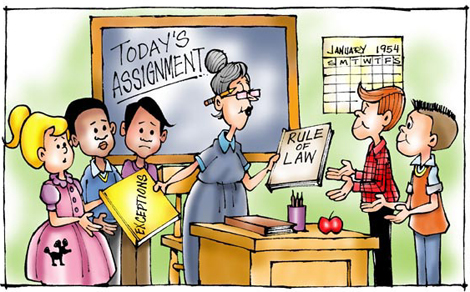 Reading practice.
Reading practice.
A feladat itt található, mely tartalmazza a megoldást is.
Tessék bevetni bátran élesben, és ha valakinek bejött, mögírhattya.
 Reading practice.
Reading practice. A feladat itt található, mely tartalmazza a megoldást is.
Tessék bevetni bátran élesben, és ha valakinek bejött, mögírhattya.
 American English Idioms
American English IdiomsAzokra a pillanatokra, amikor a szavakat érteni véli az ember gyereke, de ott van az a "he?" valahol mélyen, és ettől jó lenne megszabadulni...
Egy kellemes 600-as lista itt.
|
Idiom |
Meaning |
||||||||||||||||||||||||||||||||||||||||||||||||||||||||||||||||||||||||||||||||
|
|

Persze, ez már irodalom, meg az átlag nyelvtanuló ehhez kevés, bla-bla-bla. Lehet; na és? Akkor már nem is veszünk könyvet a kezünkbe, meg sem ismertetjük a legnagyobb műveket (vagy épp az egész kicsiket) azokkal, akiknek a jövőjéről, képességeiről, tehetségeiről a legtöbbször halvány fogalmunk sem lehet, beleértve ebbe saját magunkat is?!
Within a short walk of Longbourn lived a family with whom the Bennets were particularly (1) ________________ (intimacy). Sir William Lucas had been formerly in trade in Meryton, where he had made a (2) ________________ (tolerate) fortune, and risen to the honour of knighthood by an address to the king during his (3) ________________ (mayor). The distinction had perhaps been felt too strongly. It had given him a disgust to his business, and to his residence in a small market town; and, in (4) ________________ (quit) them both, he had removed with his family to a house about a mile from Meryton, denominated from that period Lucas Lodge, where he could think with (5) ________________ (please) of his own importance, and, (6) ________________ (shackle) by business, occupy himself solely in being civil to all the world. For, though elated by his rank, it did not render him supercilious; on the contrary, he was all attention to everybody. By nature (7) ________________ (offend), friendly, and obliging, his presentation at St. James’s had made him courteous.
Lady Lucas was a very good kind of woman, not too clever to be a (8) ________________ (value) neighbour to Mrs. Bennet. They had several children. The eldest of them, a sensible, intelligent young woman, about twenty-seven, was Elizabeth’s intimate friend.
(Jane Austen: Pride and Prejudice, Chapter 5.)
In earlier times -___________________
Designated – ___________________
Especially - ___________________
Exclusively - ___________________
Home - ___________________
Polite – ___________________
Richness – ___________________

arctic below zero beret biting bitter cold black ice blanket bleak blizzard blustery boots brisk chill chills chilly chimney coat cocoon cold cold snap comforter cough curling dog sled down coat drafty dreary duvet |
earmuffs eggnog evergreen fire fireplace firewood flannel fleece flu flurries fog freezing freezing rain frigid frostbite frostbitten frosty frozen fruitcake furnace gingerbread gingerbread house gingerbread man glacial gingerbread woman glacier gloves gust |
harsh heat heater hibernate hockey hoodie hot chocolate hypothermia iceberg ice cap ice crystal ice dam ice fishing ice hockey ice scraper ice skates ice storm icicle icy insulation Jack Frost (the personification of winter) January log longjohns luge |
mittens muffler nor'easter overcoat overshoes pinecone polar pullover raw reindeer shiver skate ski sled sledge sleet solstice slippery slush sneeze sniffle |
snowball snowboard snowbound snowfall snowflake snowman snowplow show shoe snow shovel snowstorm snowy socks storm stove sugarplum sweater thermometer toboggan turtleneck wind wind chill factor windy winter wintertime wintry wood stove wool woolens |

When speaking English, it is important that students are not afraid to make a mistake. Sometimes, when I ask a student a question they hesitate for what seems like a long time. This could be for one of four reasons: didn't understand the question, didn't hear the question properly, didn't know how to reply or were just afraid to make a mistake. As long as they can give some sort of quick reply in English then they shouldn't be punished. Appropriate answers for the above examples would be: "I don't understand the question", "Say again please" and "I don't know how to answer".
Everyone is scared to some extent when starting something new. Try to break the ice by playing some fun games and singing some easy songs with the students for the first week or so. Don't worry if these activities are noisy or seem to be irrelevant to the course material. The important thing is that the students are "warming up" and are getting used to speaking English in a relaxed atmosphere.
English should be used in the classroom as much as possible. At the start of a new school year, spend a few days going through all the classroom commands that might be useful.
* Please stand up/sit down.
* Stand at the front of the classroom.
* Sit up straight.
* Fold your arms.
* Come here please.
* Go back to your seat.
* Go and stand outside.
* Line-up outside.
* Come in.

Action Words & Phrases: When constructing a CV or completing an application form, it’s important to project a positive image of yourself. The words and phrases you use can help to create this image.Action Words: These are some general examples of positive "action/achieving" words to use when applying for jobs:|
achieved
administered analyzed built capable competent communicated consistent controlled coordinated |
created
designed developed directing efficient established expanded experience guided implemented |
improved
initiated lead managed monitored organized participated positive processed produced |
proficient
profitable qualified resourceful specialized successful supervised trained versatile willing |
|
Analyzed problems and developed solutions
|
|
Excellent interpersonal and people management skills
|
|
Able to analyze and interpret data
|
|
Able to exercise good judgment and sound reasoning
|
|
Good interpersonal skills
|
|
Able to concentrate and pay attention to detail
|
|
Can work well on own initiative
|
|
A good communicator
|
|
Experienced, self motivated and energetic
|
|
Ability to organize and motivate staff
|
|
A good planner
|
|
Careful and methodical approach
|
|
Able to work accurately under pressure
|
|
A good organizer with an eye for detail
|
|
A good team worker
|
|
Patient, tolerant and able to communicate
|
|
A good listener with a common sense approach
|
|
Persuasive but tactful
|
|
A flexible approach to changing situations
|
|
A manager of change
|
|
Determination and drive to see projects to successful completion
|
|
An active decision maker
|
|
An effective time manager
|
|
Highly numerate and computer literate
|
|
Adaptable to team or individual roles
|
|
Produces to deadlines
|
|
Extensive visual memory
|
 Ez is egy saját gyártmány - eléggé többfunkciós, mint a legtöbb, ami tőlem származik - vagyis remélhetőleg nem mindenki csak nyelvtant lát benne...
Ez is egy saját gyártmány - eléggé többfunkciós, mint a legtöbb, ami tőlem származik - vagyis remélhetőleg nem mindenki csak nyelvtant lát benne...

TALKING ABOUT PICTURES
Nyelvvizsgára készülők és felkészítők kérésére, mert egyébként egy kellemes New York-i múzeumi séta esetét leszámítva, az egész nagyon gáz, így mesterségesen, érdeklődés nélkül előállítva.
Véleményem szerint.
1. OVERALL ABOUT THE PICTURE
What kind of a picture is it?
• It's a color / black and white photograph.
• It's a picture of a painting / drawing / poster.
• I think it's an advertisement / a snapshot from a family holiday / a passport photo / a news photo.
• I think it's from a family album / a newspaper / a magazine.
Where was it taken? [To take a photo(graph) of somebody/something]
• I think it was taken in a big city / a Muslim country / the desert because...
When was it taken?
• I think it was taken in summertime / at noon / around Christmas / in November / at midnight because...
2. WHAT IS IN THE PICTURE?
Describe what you see. Use as many adjectives and adverbs as possible.
• It's a very nice, comfortable bedroom with a double bed, ...
• It's a noisy, polluted street in the center of a big European city. There are two very high buildings on the...
Locate the details.
• In the front / middle / bottom left comer there is a(n)...
• On the right we can see a(n)...
• Next to the ... there are two...
• In the background/foreground...
• Behind / under / on top of the... there is a(n)...
• To the right/left of the ... there is a(n)...
Say what people or animals are doing or what is happening (tense: present continuous).
• The man on the sidewalk it just about to cross the street to meet the woman in a yellow skirt who is standing on the other side of the street.
• It's raining heavily. The river is to flood the city any moment.
You can make up a story; however, remember that you will have to give reasons for your assumptions.
• I think they are boyfriend and girlfriend because she is smiling and he has a rose in his hand. Maybe they are going to the movies.
 Love them tough-talkin' cowboys? Sure, who doesn't? Oddly enough, though, ole' western cowboy slang was a bit different from what you'll pick up from Hollywood productions (go figger).
Love them tough-talkin' cowboys? Sure, who doesn't? Oddly enough, though, ole' western cowboy slang was a bit different from what you'll pick up from Hollywood productions (go figger).
Na, íme néhány szépség ebből a tárházból:
(Több forrásból valók az alábbiak, de az egyik legjob gyűjtemény itt található: Blevin's Dictionary of the American West.)
above snakes
Above ground. Said of a man who's still alive.
bach
To bachelor it. For men to keep house without a woman's help. Pronounced, and sometimes spelled, "batch".
bear sign
On the range, doughnuts.

Whitersoever, wherewithal, nonetheless, inasmuch as, insomuch that és barátaik. Mindennapi kötőszavak, szóval tessék gyakorolni. ;) Részletes áttekintő itt.
Look at the sentence and the three words below it. Decide which word completes each sentence and underline it.
I spent several years in Spain, ______ I never learnt to speak Spanish.
• and
• despite
• yet